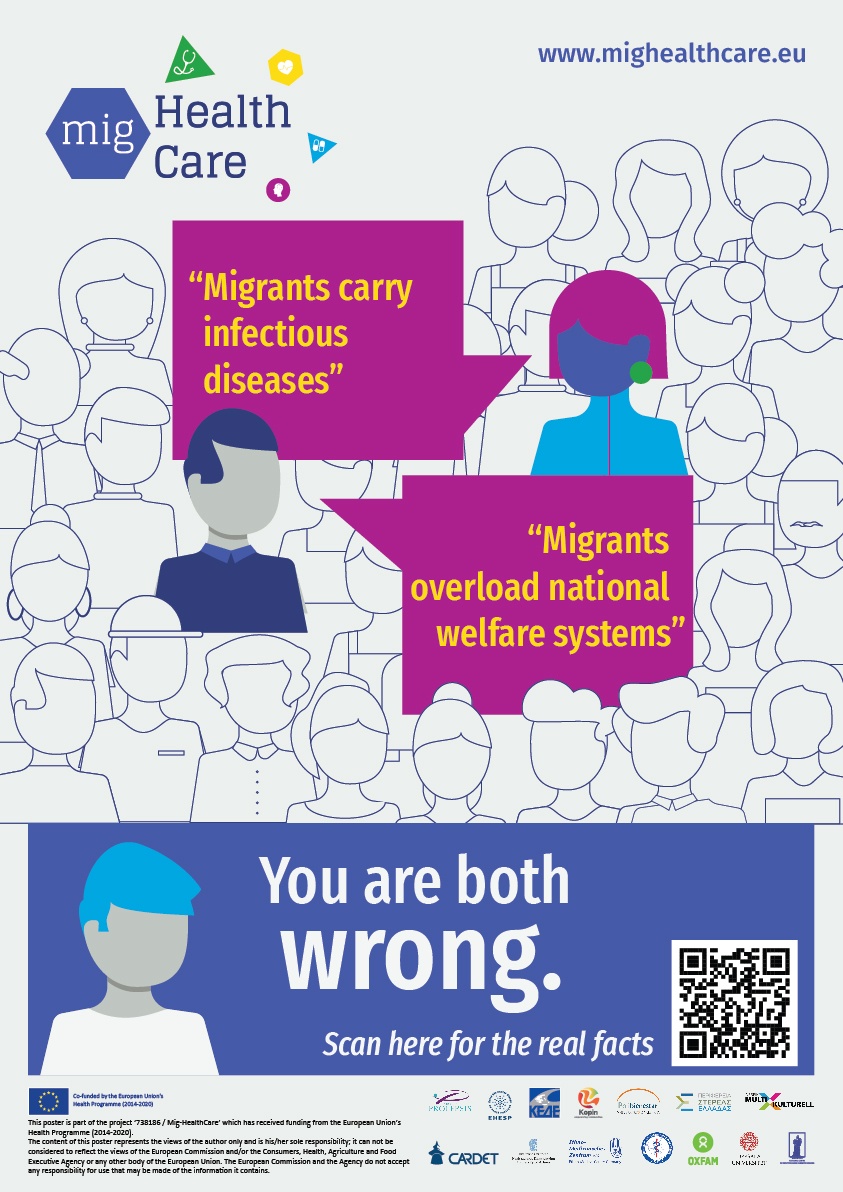Prolepsis is the leading partner in the European project Mig-HealthCare. The project aims to reduce health inequalities by improving the physical and mental health care services of migrants and refugees. Mig-HealthCare is a three-year project that was officially launched on May 1st, 2017, and is co-funded by DG SANTE (Directorate General for Health and Food Safety).
The consortium consists of 14 partners from universities, national authorities, and NGOs in 10 EU countries.
The general objective of the MigHealth Project is to support the inclusion and participation of migrants and refugees in European communities, as well as the health and wellbeing of local communities, and the sustainability of health care systems.
MigHealthCare will produce a community-based care model that will emphasise health promotion and prevention, integration, and a focus on reducing health inequalities. The model will be pilot tested in different contexts and countries. MigHealthCare will develop guidelines and tools to reorient health care services to a community level, creating networks of cooperation on all aspects that influence community health care including mental health and community integration aspects.
Responding to the need to protect the health and well-being of vulnerable migrants and refugees, and to facilitate their integration into local communities, the European Union has given priority to providing support, guidance, and expertise to local healthcare services.
Taking into consideration the ongoing and urgent refugee and migrant crisis across the EU and the EU values of universality, access to good quality care, equity and solidarity, MigHealthCare will contribute to developing innovative, efficient, and sustainable health systems, and facilitating access to better and safer healthcare for migrants, refugees and EU citizens. The partners’ network includes regional and local authorities from different regions of Europe, universities, as well as non-governmental organizations that provide services to a large number of migrants and refugees. Through pilot implementation and education in the 6 participating countries, health and social care professionals will acquire tools and skills that they can apply after the end of the project, offering long-term results and important services to the wider community.
- Recording and assessing needs through bibliographic review, quantitative surveys, and focus group discussions with target groups (migrants / refugees, Health Professionals, and members of local communities).
- Produce a community-based care model that will emphasise health promotion and prevention, integration, and a focus on reducing health inequalities. The model will be pilot tested in different contexts and countries.
- Developing guidelines and educational tools in the languages of all consortium members.
- Designing an information platform, databases, and tools for the proper operation of health units providing health care services to migrants / refugees.
- Final evaluation of pilot actions and development of recommendations for the effective provision of health services.
- Dissemination through the project website, distributing information material in the languages of the participating countries, and holding a workshop for the announcement and presentation of its results at the end of the project.
Contact information
Dina Zota, PhD Candidate: This email address is being protected from spambots. You need JavaScript enabled to view it.
Pania Karnaki, MA: This email address is being protected from spambots. You need JavaScript enabled to view it.
Source : www.prolepsis.gr







